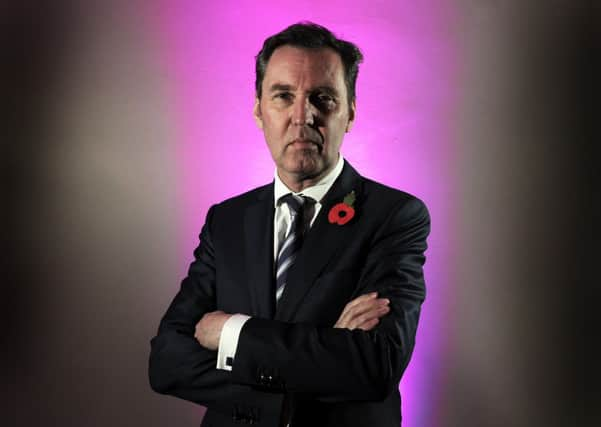Pay the living wage, firms urged


Alan Milburn, who chairs the Social Mobility and Child Poverty Commission, said: “If employers can pay it they should pay it.”
The living wage is £7.65 an hour, higher than the legal minimum wage of £6.31 an hour.
Advertisement
Hide AdAdvertisement
Hide AdSpeaking at an event in Yorkshire, Mr Milburn said it will be more difficult for some parts of the economy than others.
He highlighted the example of Australia where minimum wages are set at different grades in different sectors.
Mr Milburn said banks should pay every member of staff “at least” the living wage, including contract cleaners.
He added that it would be harder to introduce at supermarkets or in the hospitality sector where margins are tighter and an increase in earnings could undermine employment.
Advertisement
Hide AdAdvertisement
Hide AdHe said: “I do remember in the very middle of the 1990s when people were warning that a minimum wage would destroy two million jobs in this country and the minimum wage was introduced and actually employment rose by about two million so there are two sides to every argument.”
Mr Milburn’s report for the Government on social mobility and child poverty revealed that two thirds of poor children now come from families where an adult works.
He claimed that the minimum wage has declined by £1,000 in real terms since 2008.
Mr Milburn said: “We face very big challenges as employers. The UK has one of the highest rates of low-pay in the developed world.
Advertisement
Hide AdAdvertisement
Hide Ad“There are five million workers today, mainly women, who earn less than the living wage.
“These are the people who do all the right things – go out to work, look after their family, stand on their own two feet, to strive, not to shirk, and they are the people who get the worst deal.”
He added: “How do we get the right balance between wanting to expand employment and needing to expand earnings? The truth is, this has to be a joint effort between the taxpayer and employers, bridging the gap between earnings and prices.”
The issue of falling living standards has shot up the political agenda in recent weeks.
Advertisement
Hide AdAdvertisement
Hide AdA Downing Street spokesman told the Yorkshire Post: “We encourage employers to pay above the national minimum wage when they are profitable.”
He said the Government has asked the Low Pay Commission to look at how the national minimum wage could rise faster without any impact on the economy to help low-paid workers benefit from the emergent economic recovery.
Tom Vosa, chief economist at Yorkshire Bank, said the economic impact of the introduction of the living wage would be small.
Mr Milburn was speaking at the second Yorkshire Social Mobility Summit in Leeds, which was hosted by the law firm Gordons.
Advertisement
Hide AdAdvertisement
Hide AdHe told the audience: “Something is happening across the Western world and it’s not peculiar to Leeds, the North East and the UK. You can see it in America, Germany and France.
“It is a hollowing out of the labour market. Not just jobs at the bottom but jobs in the middle are being lost, undermined and undervalued and that is probably an inexorable trend.
“A lot of it is actually positive rather than negative. The long-term answer is going to have to be about raising the quality of employment.
“You can only raise the quality of employment if you raise the quality of people and that comes back to skills, training and education.”
Advertisement
Hide AdAdvertisement
Hide AdHe said Yorkshire has about the lowest proportion of good or outstanding schools in the country.
Similarly, the proportion of children getting five good GCSEs is about the lowest in the country.
He said early years childcare, higher attainment in schools, equal access to higher and further education, incentives to work and fair access to the professions all help to improve social mobility.